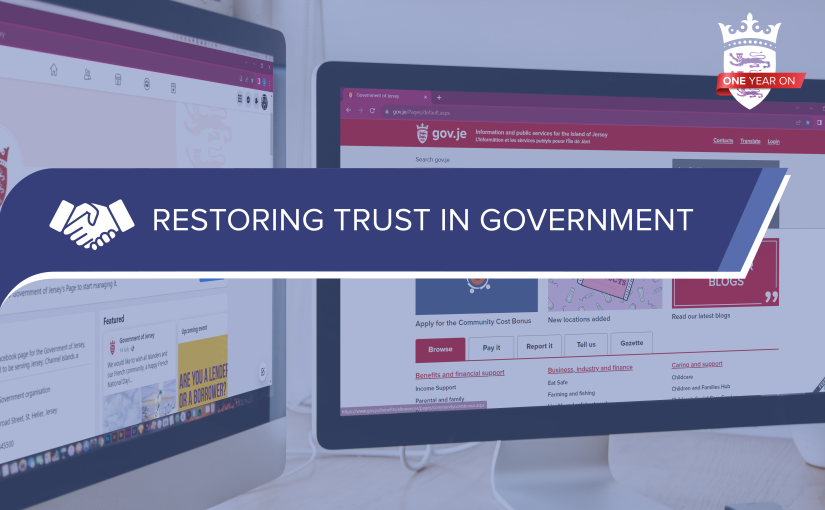by Graham Ramsden, Chief Digital Officer
The word “digital” has become common place, its everywhere, but what do we mean by it and importantly what relevance does it have for how the Government of Jersey delivers our public services?
For some people, digital means technology. Something electronic, with a screen and perhaps buttons, a computer, tablet, or phone. Maybe technology is something that excites you or is something you are cautious about. Technology is all around us though, and we have come to refer to advances in technology as being digital.
When a watch changed from a clockwork device with hands that pointed to numbers, to an electronic device with a screen showing the numbers, we called it a Digital Watch. When cameras were launched that didn’t need film, we called them Digital Cameras. The dictionary defines digital as “a system of sending and receiving information as a series of the numbers one and zero, showing that a signal is there or is not there”, but I believe we should see digital not as a ‘thing’, not as technology, but as a way of doing things.
One thing is for sure, digital has transformed the way we live our lives, and has revolutionised many service industries such as retail, financial services, and travel. Organisations in those industries don’t provide fundamentally different products or services though. They still sell things, offer bank accounts and mortgages, and transport us from a to b, but thinking digitally has changed the way they deliver their products and services.
For us as consumers they have become easier, more convenient, and quicker. Take banking for example, we don’t have to wait for our monthly statement in the post to check what has gone through our accounts, we can see transactions instantly, in real time and whenever we want. We can shop when we want, we can check whether our flight is on time, and we don’t need a road atlas for a long car journey because our car will tell us which way to go. There are literally hundreds and thousands of examples in our everyday lives of where organisations thinking digital has made a difference to the way we consume products and services.
Governments around the world have begun to recognise that taking a digital approach is essential to improve the engagement and trust between citizens and government, modernise the way government works, and deliver public services more efficiently. These challenges and opportunities are no different for Jersey, and whilst we have made progress over recent years with online forms replacing many paper forms, Yoti and JerseyMe providing secure access, and electronic filing of your personal income tax return, there is more that we can do.
COVID-19 forced us to think in a different way about how some services were delivered, and we learned a lot. Whilst COVID-19 measures affected us all, taking a digital approach and putting the customer at the centre of how those services were designed helped us reduce the impact. Remember when it was necessary for everyone to have a PCR test they travelled to the Island? Only through taking a digital approach and considering the end-to-end experience were the teams able to handle over 2,000 tests every day, limit delays to people at the airport and harbour, and provide test results quickly. As measures developed and people became vaccinated, we were able to join up that information with their travel intentions and allow an exemption to testing before they even arrived on Island. We used the information available in a more ‘joined up’ way to deliver a better experience.
We should take these lessons and apply them to more of our public services. There is a clear commitment from Government to use digital to deliver real improvements to services, ultimately making it easier for us as Islanders to live our lives.
We are developing a cross-government digital strategy which will be underpinned by solid principles, and in future blogs I look forward to sharing those principles and more of our plans with you. Digital isn’t something to be cautious or worried about. It is an opportunity to transform the way services are delivered for all our benefit. We are on a journey, which we must do at the right pace and in a way that is inclusive to all, no matter your feelings, preferences or confidence about technology. Remember, eventually digital stops being a ‘thing’ and is just the normal way. I’ll leave you with a question. Who talks about their Digital Watch anymore?
 blog.gov.je
blog.gov.je